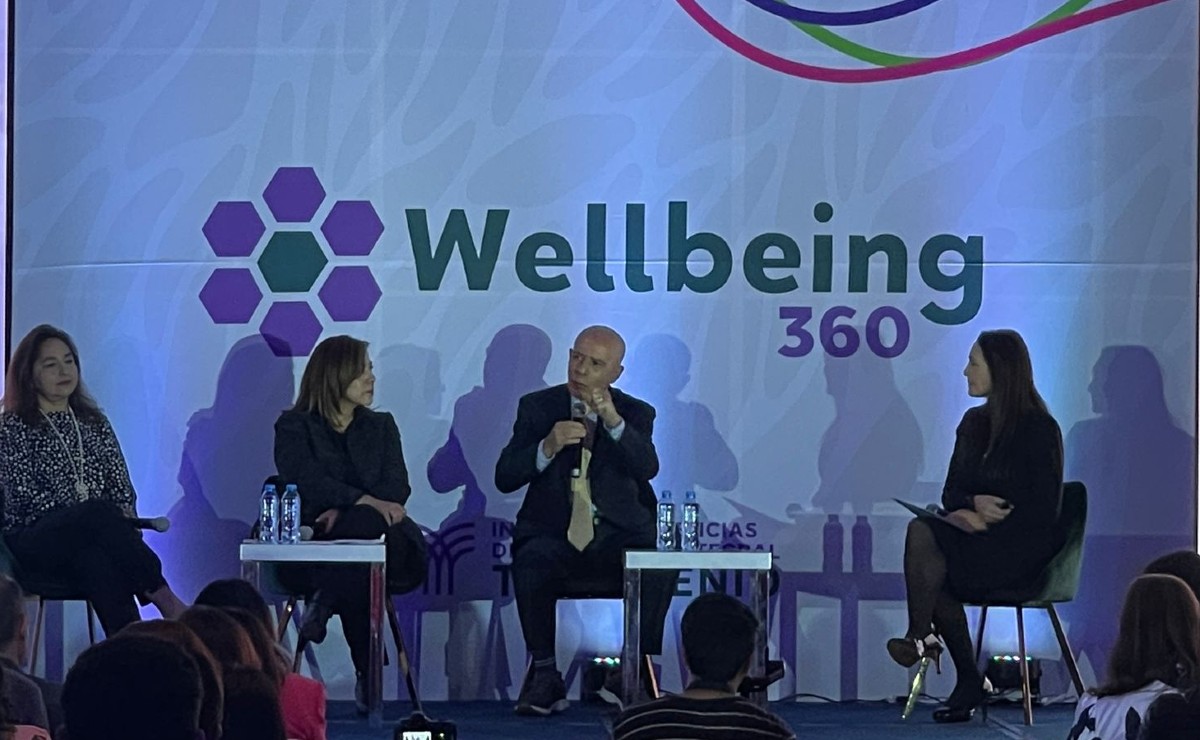Wellbeing 360, Education for Wellbeing

With the aim of promoting people’s well-being through education, exploring ways to connect with one’s conscience and providing tools for living fully, “Wellbeing 360”, organized by Tecmilenio, has reached its last day of activities by the hands of the world’s experts who share their experience and knowledge.
In his presentation “Emotional Intelligence for a Whole Life” Miguel Angel Díaz Escuto spoke about the critical ability to manage emotions. His way of working on this aspect is influenced by the model of specialists John Mayer and Peter Salovey, which is based on four skills. The first is about emotions, to learn how to use them correctly. Then it is important to understand where they come from, then how they develop and finally to be able to manage them correctly. These abilities also help with knowing how to help others.
As president of the Spain-based ASNIE (National Association for Emotional Intelligence), Díaz Escuto noted that his goal is to help with emotional literacy and that more and more people can feel full or at least understand why they don’t feel that full.
In his “Forgotten Basic Needs” conference, the Spanish author of Every Morning of Your Life, Pedro Correa, gave a brief glimpse into the emotional distress that many people experience in the midst of this neoliberal capitalist system. He pointed to the urgent need to restore what he calls basic, invisible needs such as love, joy, cooperation, empathy, benevolence, and the meaning of life.
Timothy Sharpe, the world-renowned academic and pioneer in the field of positive psychology, in his talk “Positive Parenting: Practical Advice from Positive Psychology,” summarized longevity studies conducted at universities such as Harvard, which analyzed longevity, prosperity, and happiness. He concluded that what contributes most to well-being and a full life is love and affection, which generates primarily positive relationships.
To get there, Sharp added, “When it comes to positive parenting, we want to focus on nurturing, developing, and maintaining beneficial relationships with our children. What we seek is to help them build positive relationships with their friends, colleagues, and social networks. This is a potential goal.”
“Mental Power: How to Accept Stress,” was the title of a conversation that Kelly McGonigal, a health psychologist and professor at Stanford University, had with Dr. Rosalinda Ballesteros, director of the Tecmilenio Institute for Integrated Wellbeing Sciences. It was a dialogue in which he said that “most people define stress as everything they don’t want, what they don’t want to feel and what they don’t want to deal with.” However, for her, stress should be defined scientifically because “Stress is what arises in you when something that matters to you is at stake. So it includes your thoughts, feelings, and emotions, and it can also include things like focus and courage.”
When I encountered a problem, Kelly McGonigal stated that one should ask oneself if there is something I can do, say, or what path to choose. See if there is someone I can connect with to make a positive difference or avoid worse stress and more suffering. So instead of saying my heart is beating. We must find out with questions What do I care? And what do I do now?
Princess Sarah Asim bin Nayef, Transpersonal Life Coach, Co-Founder of the Cayan Project and Global Coach for MindUp, spoke about “the power of compassionate parenting” as a safe way to take up parenting in order to positively understand how to develop their intelligence. passionate. Emotions such as attachment and compassion are fundamental to developing a more fulfilling family.
How do we develop greater meaning in our lives? The conference was presented by Chilean psychologist Monica Lopez, who shared concepts crucial to people to give greater meaning to their lives. Fundación Vivir Director mentioned competence and independence as key elements. He also stressed the need for healthy personal relationships.
She pointed to the American Emily Esfahani’s four-pillar model for finding greater meaning in life. This model understands a sense of belonging as central to well-being. It also includes the purpose, to “use strengths to make a difference”, and thus flow towards the goal. Then there is transcendence, feeling above everyday circumstances and connecting with something deep and great. And finally, the story, the story we make about ourselves and our lives. If we are aware of this narrative, we can reflect and be sure that it does not stop us from moving forward.
The conference that ended with “Wellbing 360” was presented by Roberto Mtz. , a Monterey-born content creator, who has over 11 million followers. As the author of Creativity: 100 Tips for Living From Your Art, Roberto Metz talks about how to face challenges when creating artwork.
In front of an audience of tens of thousands of people who watched nearly 50 speakers given in the four days that made up Wellbeing 360, Roberto Mtz offered advice on how to assume creativity even if it’s hard to start working on. Procrastination and procrastination can also be a platform for individual development, starting with ideas on how to overcome perfectionism or a lack of resources.

“Award-winning zombie scholar. Music practitioner. Food expert. Troublemaker.”


/cloudfront-eu-central-1.images.arcpublishing.com/prisa/AHVYMMDSTZDTDBFNZ3LMFUOKNE.jpg)








